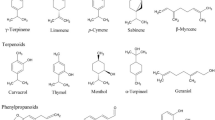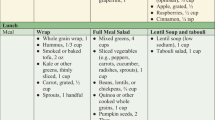Abstract
This article focuses the category status of Chinese herbal medicine in the United States where it has been mistakenly classifified as a dietary supplement. According to Yellow Emperor Canon of Internal Medicine (Huang Di Nei Jing), clinical treatment in broad sense is to apply certain poisonous medicines to fight against pathogeneses, by which all medicines have certain toxicity and side effect. From ancient times to modern society, all, or at least most, practitioners have used herbal medicine to treat patients’ medical conditions. The educational curriculums in Chinese medicine (CM) comprise the courses of herbal medicine (herbology) and herbal formulae. The objective of these courses is to teach students to use herbal medicine or formulae to treat disease as materia medica. In contrast, dietary supplements are preparations intended to provide nutrients that are missing or are not consumed in suffificient quantity in a person’s diet. In contrast, Chinese herbs can be toxic, which have been proven through laboratory research. Both clinical practice and research have demonstrated that Chinese herbal medicine is a special type of natural materia medica, not a dietary supplement.
Similar content being viewed by others
References
Webster’s Ninth New Collegiate Dictionary. Merriam-Webster Inc., Springtide, Massachusetts, USA; 1987:565.
Bensky D, Gamble A, Kaptchuk T, eds. Chinese herbal medicine: materia medica. Seattle, USA: Eastland Press;1993:3–23.
Chen J, Chen T, eds. Chinese medical herbology and pharmacology. City of Industry, USA: Art of Medicine Press: 2001:1–29.
Bent S. Herbal medicine in the United States: review of efficacy, safety, and regulation. J Gen Int Med 2008;23: 854–859.
The Dietary Supplement Health and Education Act of 1994. Public Law 103-417. 103rd Congress. USA. Available at: https://www.gpo.gov/fdsys/pkg/STATUTE-108/pdf/STATUTE-108-Pg4325.pdf.
Chen Z, Song G, eds. Divine husbandman’s classic of the materia medica—Chinese medicine top ten classic xerox. Beijing: Academe Publishing House; 1995:277–306.
People’s Medical Publishing House, collated. Yellow Emperor Cannon of Internal Medicine—Plain Questions. Beijing: People’s Medical Publishing House;1963:80-88.
Jelicic Kadic A, Zanic M, Skaricic N, Marusic A. Using the WHO essential medicines list to assess the appropriateness of insurance coverage decisions: a case study of the croatian national medicine reimbursement list. PLoS ONE 2014;9(10):e111474.
Eichhorn T, Greten H, Efferth T. Self-medi’scation with nutritional supplements and herbal over-the-counter products. Nat Prod Bioprospect 2011;1: 62–67.
Dasgupta A. Herbal remedies: effects on clinical laboratory tests. Accur Results Clin Lab 2013:75–92.
The Accreditation Commission for Acupuncture and Oriental Medicine (ACAOM):ACAOM Accreditation Manual [eff. 02/27/2016]. Available at: http://acaom.org/wp-content/uploads/2016/11/160227_acaom_accreditation_manual.pdf.
Food and Agriculture Organization of the United Nations, CCNFSDU. Guidelines for Vitamin and Mineral Food Supplements (CAC/GL 55-2005):1-3. Available at: www.fao.org/input/download/standards/10206/cxg_055e.pdf
Author information
Authors and Affiliations
Corresponding author
Rights and permissions
About this article
Cite this article
Bao, K. Non-scientific classification of Chinese herbal medicine as dietary supplement. Chin. J. Integr. Med. 23, 166–169 (2017). https://doi.org/10.1007/s11655-016-2536-8
Received:
Published:
Issue Date:
DOI: https://doi.org/10.1007/s11655-016-2536-8




